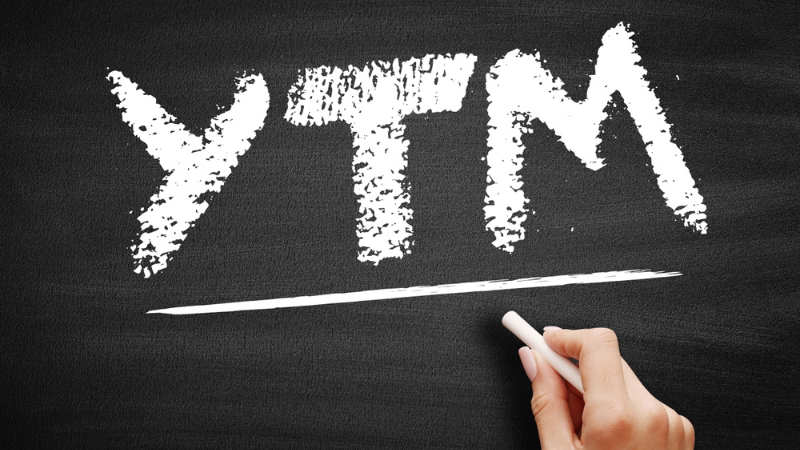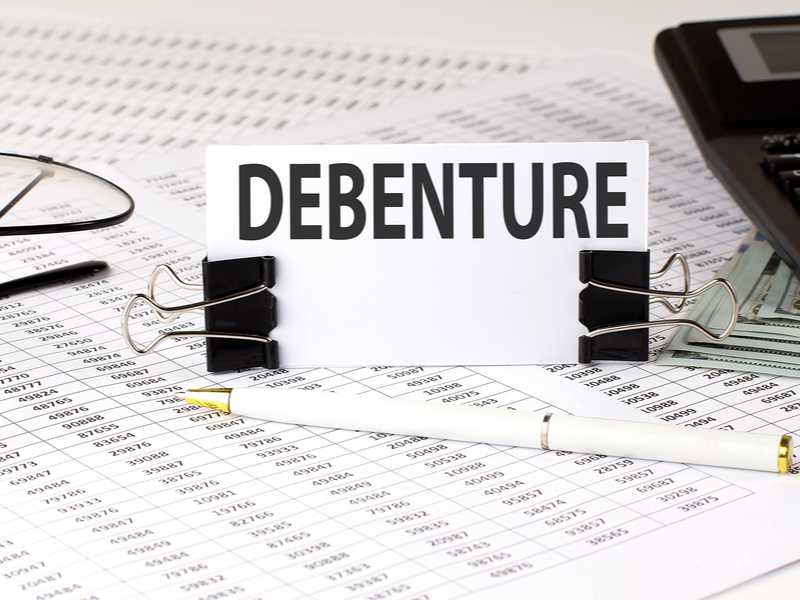
Equity and debentures are the most common forms of raising funds for any company. Equity shares of the company provide the investors with ownership of the company. While debentures do not always provide this benefit, there are several other features of debentures that make them an attractive investment. Debentures are typically issued by large companies to raise funds. Some of these debentures can be converted to equity while some cannot. The latter is referred to as non-convertible debentures.
Given below are the details of these non-convertible debentures.
What are Non Convertible Debentures (NCDs)?
When a company issues debentures, they are classified into two broad categories convertible and non-convertible. Convertible debentures can be converted to equity shares at the time of redemption at the option of the investors. Non convertible debentures on the other hand do not have such an option.
These debentures provide a fixed rate of interest also known as coupon rate as well as have a fixed maturity period. As these debentures cannot be converted to equity, the interest rate offered on these debentures is usually higher than convertible debentures. At the time of maturity, the investors can redeem their debentures along with interest. These debentures are usually not backed by any assets of the company hence the creditworthiness of the company or the credit rating are the main parameters to go by to make an investment decision.
Types of NCDs
Non convertible debentures are broadly classified under two main categories, namely secured and unsecured debentures.
- Secured NCDs
Secured NCDs are the debentures that are backed by any assets or any collateral of the company. Investors are informed of the nature of the debentures at the time of their issue. Any default by the company in payment of redemption amount can be recovered by the investors by liquidating the asset that is used to secure the NCD. The rate of interest offered by the company on the secured debentures is lower than that offered on unsecured debentures.
- Unsecured NCDs
Unsecured NCDs are not backed by any asset or collateral by the company. To compensate for this drawback, the interest rate offered by the company for such debentures is higher than that offered on secured NCDs. If the company defaults in its payments towards unsecured NCDs, the investors do not have any choice but to wait for such payments. This makes them a riskier investment. It is, therefore, essential to invest in NCDs issued by high credit-rated companies to safeguard investor interest.
Features of Non‐Convertible Debentures, NCDs
While NCDs do not have the option to be converted into equity shares, there are several other features that make it a sound investment. Some of its prime features are discussed below.
- Higher rate of interest
NCDs provide a higher rate of interest to the investors especially in cases of unsecured NCDs. The rate of interest is inversely proportional to the creditworthiness of the company. When investors take a chance by investing in a relatively lower-rated company, they expect a higher return for the higher risk taken by them.
- Tradability
These debentures are usually listed securities and hence can be traded in secondary markets. This gives them the benefit of liquidity.
- Mode of subscription
NCDs can be subscribed by the investors through public issues. Interest investors can subscribe to these debentures within the specified time frame. After they are listed on the stock exchange, investors can also subscribe to these debentures through registered brokers also.
- Issued by reputed companies
These debentures are usually issued by reputed companies to raise funds. If the company does not meet its obligations towards NCD investors, the credit rating of the company will be adversely impacted.
Factors to consider while investing or trading in NCDs
Some of the important factors to bear in mind while investing or trading in NCDs are:
- Reputation of the company
The reputation of the company is the key factor to be considered while investing in NCDs. Investors should invest in AAA-rated companies to ensure that they get their due returns in the form of interest payouts as well as redemption value without any high risk of default.
- Considering important financial ratios of the company
Another important consideration is the financial health of the company. Investors have to look at certain key financial ratios among other factors like the historical performance of the company before investing in its NCDs Some examples of such ratios are
- Debt-equity ratio
The debt-equity ratio is the ratio of debt and equity in any company. The company should not be heavily financed by debt as well should not be entirely financed through equity. The ideal debt-equity ratio varies based on the industry type but is generally preferred to be 1:1. However, a debt-equity ratio of 2: 1 or higher is considered to be unhealthy.
- Capital adequacy ratio
The capital adequacy ratio is the measure of the capital of the company against any potential losses. An ideal capital adequacy ratio is around 15% and has to be historically maintained as a sign of a healthy company.
- Interest coverage ratio
The interest coverage ratio is the ability of the company to service its debt obligations. A higher interest coverage ratio is viewed as a sign of a healthy company.
- Trading NCDs when the interest is due
The value of the NCDs is highest at the time when the interest on such instruments is due for payment. Selling the NCDs at such time will give the investors maximum returns on their investment.
- Adequate provision for NPA
A healthy company should be able to provide for at least 50% of its potential NPAs. This ensures that the company is generating enough returns to meet its obligations and mitigate the risk of the investors.
- Tenure and purpose of NCDs
NCDs offer flexible tenure ranging from 2 years to usually 20 years. Investors can invest for a tenure that meets their financial objective and risk appetite. NCDs are issued by the companies to raise funds for any financial purpose. This purpose has to be specific and not ambiguous to ensure that the investor funds are used for correct reasons that attribute to the growth of the company. If the offer document does not provide any clarity, it is better to avoid such NCDs.
Tips for investing in NCDs
Here are some tips for investing in Non-Convertible Debentures (NCDs):
- Organisations resort to using NCDs to raise funds for a specific business purpose. Read the terms and conditions carefully; if they do not provide clarity on how/where your money will be used, do not invest.
- Diversification, or investing across different firms and time periods, can significantly reduce risks.
- NCDs from a single sector (NBFCs that specialise in personal loans) are risky investments.
- NCDs from secondary markets have historically provided higher returns.
- Never base your decision solely on the interest rate.
Conclusion
NCDs are an attractive investment option that provides high interests and also of fixed tenure. However, investors should not rely only on interest rates for investment. The credit rating of the company and the purpose of raising the funds are also important considerations to ensure that the investor interest is secure.
FAQs
1. How are NCDs taxed?
A. NCDs are subject to capital gains depending on the period of holding. If the NCDs are sold within a year, they are liable to short term capital gains that are taxed at the applicable slab rates of the investor. When NCDs are sold after the completion of a year, they are subject to long-term capital gains which are taxed at 20% with the benefit of indexation.
2. How are NCDs allotted?
A. NCDs are allotted on ‘First Come First Serve Basis’.
3. What are the payout options offered for NCDs?
A. NCDs offer varying payout options depending on the guidelines at the time of issue of such NCDs. The various payment options include monthly, quarterly, half-yearly, or annual interest payments.

























